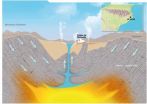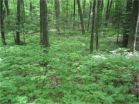(Press-News.org) Toronto, February 29, 2012 - Scientists at the Toronto Western Research Institute (TWRI), Krembil Neuroscience Center, have developed a drug that protects the brain against the damaging effects of a stroke in a lab setting. This drug has been in development for a few years. At this point, it has reached the most advanced stage of development among drugs created to reduce the brain's vulnerability to stroke damage (termed a "neuroprotectant"). Over 1000 attempts to develop such drugs by scientists worldwide have failed to be translated to a stage where they can be used in humans, leaving a major unmet need for stroke treatment. The drug developed by the TWRI team is the first to achieve a neuroprotective effect in the complex brain of primates, in settings that simulate those of human strokes. ischemic stroke.
The study, "Treatment of Stroke with a PSD95 inhibitor in the Gyrencephalic Primate Brain", published online today in Nature, shows how the drug, called a "PSD95 inhibitor" prevents brain cell death and preserves brain function when administered after a stroke has occurred.
"We are closer to having a treatment for stroke than we have ever been before," said Dr. Michael Tymianski, TWRI Senior Scientist and the study's lead author. "Stroke is the leading cause of death and disability worldwide and we believe that we now have a way to dramatically reduce its damaging effects."
During a stroke, regions of the brain are deprived of blood and oxygen. This causes a complex sequence of chemical reactions in the brain, which can result in neurological impairment or death. The PSD95 inhibitor published by the Toronto team acts to protect the brain by preventing the occurrence of these neurotoxic reactions.
The study used cynomolgus macaques, which bear genetic, anatomic and behaviour similarities to humans, as an ideal model to determine if this therapy would be beneficial in patients.
Animals that were treated with the PSD95 inhibitor after a stroke had greatly reduced brain damage and this translated to a preservation of neurological function. These improvements were observed in several scenarios that simulated human strokes. Specifically, when the treatment was given either early, or even at 3 hours, after the stroke onset, the animals exhibited remarkable recoveries. Benefits were also observed when the drug therapy was combined with conventional therapies (aimed at re-opening blocked arteries to the brain). Beneficial effects were observed even in a time window when conventional therapies on their own no longer have an effect.
"There is hope that this new drug could be used in conjunction with other treatments, such as thrombolytic agents or other means to restore blood flow to the brain, in order to further reduce the impact of stroke on patients," said Dr. Tymianski. "These findings are extremely exciting and our next step is to confirm these results in a clinical trial."
INFORMATION:
Dr. Michael Tymianski holds a Tier 1 Canada Research Chair in Translational Stroke Research. He is a neurosurgeon at Toronto Western Hospital, the Medical Director of the Neurovascular Therapeutics Program and the Interim Head of the Division of Neurosurgery at the University Health Network. He is also a Professor in the Department of Surgery and a member of the Institute of Medical Science at the University of Toronto.
About Krembil Neuroscience Centre
The Krembil Neuroscience Centre (KNC), located at Toronto Western Hospital, is home to one of the largest combined clinical and research neurological facilities in North America. Since opening in 2001, KNC has been recognized as a world leader through its research achievements, education and exemplary patient care. The centre focuses on the advancement, detection and treatment of neurological diseases and specializes in movement disorders, dementias, stroke, spinal cord injury, blinding eye diseases, epilepsy and cancer-related conditions.
For more information please visit www.krembil.com
About University Health Network
University Health Network consists of Toronto General, Toronto Western and Princess Margaret Hospitals. The scope of research and complexity of cases at University Health Network has made it a national and international source for discovery, education and patient care. It has the largest hospital-based research program in Canada, with major research in cardiology, transplantation, neurosciences, oncology, surgical innovation, infectious diseases, and genomic medicine. University Health Network is a research hospital affiliated with the University of Toronto.
For more information please visit www.uhn.ca
For more information, please contact:
Nadia Daniell-Colarossi
Krembil Neuroscience Centre
Toronto Western Hospital
Tel: 416-603-5294
nadia.daniell-colarossi@uhn.on.ca
END
Propulsion by a novel jet engine is the crux of the innovation behind a University of Colorado Boulder-developed aircraft that's accelerating toward commercialization.
Jet engine technology can be small, fuel-efficient and cost-effective, at least with Assistant Professor Ryan Starkey's design. The CU-Boulder aerospace engineer, with a team of students, has developed a first-of-its-kind supersonic unmanned aircraft vehicle, or UAV. The UAV, which is currently in a prototype state, is expected to fly farther and faster -- using less fuel -- than anything remotely similar ...
Monitoring the construction of wells, avoid over-exploiting cold groundwater close to hot groundwater, and controlling mineral water extraction. These are the recommendations from the Polytechnic University of Catalonia and the University of Barcelona, after analysing the contamination of La Selva geothermal system, above all by arsenic pollution. In this region, which is known for its spa resorts and bottling plants, as well as in other Catalan coastal mountain ranges, uranium levels higher than what is recommended by the WHO have been detected.
The groundwater in La ...
Atlanta pest control company Team Pest USA has opened a new location offering pest control services in Gainesville, GA. This latest expansion is the most recent example of the continued growth that Team Pest USA has maintained over the past four decades.
Since 1971, Team Pest USA has been providing outstanding pest control in Atlanta, and that dedication to reliable pest control services has, in large part, been a reason for the company's continued success and current expansion in Gainesville. Team Pest USA offers an extended list of services, including mosquito control, ...
It's one of life's special moments: a child finds a fat caterpillar, puts it in a jar with a twig and a few leaves, and awakens one day to find the caterpillar has disappeared and an elegant but apparently lifeless case now hangs from the twig.
Then, when the jar has been forgotten, soft beating against its glass walls calls attention to a new wonder: the jar now holds a fragile-winged butterfly or dusky moth with fringed antennae.
These transformations are so startling that a child's awe seems a more appropriate response than an adult's calm acceptance.
How is it, ...
A recent decline in ovenbirds (Seiurus aurocapilla), a ground-nesting migratory songbird, in forests in the northern Midwest United States is being linked by scientists to a seemingly unlikely culprit: earthworms.
A new survey conducted in Minnesota's Chippewa National Forest and Wisconsin's Chequamegon-Nicolet National Forest by a research team led by Scott Loss of the University of Minnesota and the Smithsonian Migratory Bird Center has revealed a direct link between the presence of invasive European earthworms (Lumbricus spp.) and reduced numbers of ovenbirds in mixed ...
Employees at Atlanta granite countertop fabricator Premier Surfaces have shaved their heads to support one of their own. When a beloved team member learned that she would be undergoing chemotherapy treatment for breast cancer, she made the brave decision to shave her head instead of letting the chemo take her hair. The men at Atlanta granite counters supplier Premier Surfaces felt it was important to lend her moral support, and roughly 20 of them shaved their heads with her.
The employee was diagnosed with breast cancer in December of 2011, and began her first chemotherapy ...
Alexandria, VA – What if we could cheaply and efficiently detect a potent new energy source, while also monitoring for environmental safety? Olivier Carrière, a physicist in the Marine Physical Laboratory at the Scripps Institution of Oceanography, and other researchers are using the symphony of sound produced in the ocean to do just that.
When natural gas is released from the seafloor, it produces bubbles; similarly, gas leaking from a pipeline also produces bubbles. Instead of traditional acoustic methods that use active surveys of the ocean floor with sonar or seismic ...
The following highlights summarize research papers that have been recently
published in Geophysical Research Letters (GRL), Journal of Geophysical Research-Earth Surface (JGR-F), Journal of Geophysical Research-Atmospheres
(JGR-D), Journal of Geophysical Research-Solid Earth (JGR-B), and Journal of Geophysical Research-Space Physics (JGR-A).
In this release:
1. Effect of vegetation die-off tested on tidal marshland
2. Capsizing icebergs release earthquake-sized energies
3. Asian emissions contribute to air pollution in western United States
4. Remote sensing ...
A drug once taken by people with HIV/AIDS but long ago shelved after newer, modern antiretroviral therapies became available has now shed light on how the human body uses its natural immunity to fight the virus—work that could help uncover new targets for drugs.
In an article published online this month by the journal PNAS, a group of U.S. and Swiss researchers led by scientists at the University of California, San Francisco (UCSF) presented the first clinical assessment of how this drug fights infections in people. The drug, called interferon, is a biotechnology product ...
The Atlanta pest control experts at North Fulton Pest Solutions are proud to announce that they now offer Builders Club rewards for new construction termite services. Eligible Atlanta termite control services contracted through North Fulton Pest Solutions can earn home builders and remodelers Club Points which are redeemable for merchandise or travel through Builders Club.
"Builders Club is a great opportunity for builders and remodelers," says Blake Edwards, Director of Business Development for North Fulton Pest Solutions, the exterminators Atlanta trusts. ...





